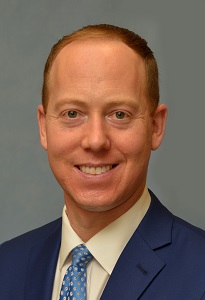State auditors weren’t able to reach any conclusions about whether tax exemptions give governments and nonprofits a competitive edge over for-profit businesses offering similar services in the private sector.
Auditors said their efforts were complicated by a lack of available new research on the issue as well as their inability to look deeper into private sector businesses to determine whether governments and other nonprofits had a competitive advantage.
The auditors said in their report that they would need more time and data than was available to determine what industries and in what circumstances government and nonprofits compete with for-profit businesses.
The audit had to be submitted by Jan. 15.
“Although government, non-profit, and for-profit businesses may appear to compete, the research indicates that true competition may be limited, at best,” the audit said.
“Further, while government and non-profit tax and exemption status might offer an advantage over for-profit business, the issue has not been well-studied.
“Unfortunately, existing tax data in Kansas is not precise enough for us to reliably quantify the specific effect of tax or exemption differences.”
Th audit was the latest turn in an ongoing statehouse debate over the role of government in providing services that are offered by the private sector, namely fitness centers.
Most recently, lawmakers last year killed a bill that would have exempted fitness centers from property taxes.
Genesis Health Clubs, run by Rodney Steven, led the effort for the tax break arguing that health clubs are increasingly facing competition from nonprofit and municipally owned gyms that don’t have the burden of paying taxes.
They claimed that local governments had spent more than $100 million in the last 15 years on “gigantic facilities,” causing private competitors to close.
Steven, a frequent contributor to Kansas lawmakers, unsuccessfully pushed similar legislation to tax nonprofit health clubs like YMCAs in 2013 and 2014.
It was revealed last year that Steven owed at least more than a half-million dollars in delinquent property taxes.
Legislators last year decided to seek an audit to examine whether for-profit businesses were at a competitive disadvantage to similar services offered by governments and nonprofits.
The audit’s results immediately sparked a debate in the Legislative Post Audit Committee about whether the issue should be put to bed or investigated further.
A Democrat state senator said someone should stick “a fork in this bad idea,” while Republicans said the issue presents a real threat to for-profit businesses.
The audit found that research showed that government and nonprofit businesses have some advantages over for-profit businesses, but the effect was unclear.
Some research found that government and nonprofit businesses have competitive advantages, but the effect on for-profit businesses varied, the audit said.
One study found that large for-profit day care centers were more likely to go out of business than government centers.
But another study that looked more generally found that the effect of nonprofit advantages on for-profit businesses varied by industry.
Auditors looked at another study that found that the primary advantage of nonprofits is their ability to offer services at lower prices because they don’t need to turn a profit.
“This advantage can have a negative effect on for-profit businesses. The lower prices that non-profits may offer can reduce the viability of their for-profit counterparts.”
The auditors looked at differences in tax rates for industries in Kansas: fitness centers, day care centers and mental health centers.
They selected those businesses because in many parts of the state, government, for-profit, and nonprofit businesses exist in close proximity and may offer similar services.
For instance, in some areas of the state, local governments, YMCAs and private businesses all run fitness centers in the same city.
The auditors found that for-profit fitness centers, day care centers, and mental health centers pay taxes that similar government and nonprofit centers do not.
However, the auditors said there were limits to their analysis.
“We lacked the information and time to fully assess which for-profit industries compete with non-profits and government,” the audit said.
“As the research showed, it is not clear what types of for-profit businesses truly compete with non-profits or government run businesses.”
The auditors looked at tax data at the Department of Revenue, but the information contained in tax returns was insufficient to determine how the differences in tax rates affected competition between Kansas businesses.
They also noted that state law limited their authority to audit the private sector and they could not require businesses – for-profit and nonprofit alike – to share information that would have shed more light on the issue.
Auditors said they tried to collect tax data by various industries, but the codes that allow them to do that were too broad.
Businesses are assigned codes that identify an industry, but they are so broad that they often include businesses that are not similar.
For example, the code that fitness centers use also includes karate and gymnastics centers and ice skating rinks.
The auditors also tried to collect information through a survey of 751 for-profits, nonprofits and governments that operate child care, fitness or mental health centers in Kansas.
They asked operators about their opinions on competition and tax exemptions and only 15%, or 110, completed the survey.
“Due to numerous problems with survey responses, we are unable to draw any valid conclusions from the survey,” the audit said.
The survey did produce these results, however:
- There was disagreement about how much nonprofits and governments compete with for-profit businesses. The survey found that 58% of nonprofit and governments reported that they compete with similar for-profits businesses. But 82% of for-profit businesses thought they competed with similar governments and nonprofits.
- Seventy-seven percent of the for-profit businesses surveyed believed their business was at a disadvantage when competing with nonprofits or government offering similar services. They believed that tax exemptions allow nonprofit and government competitors to charge less for services and to pay staff more.
- Fifty-four percent of for-profit respondents identified real estate property tax as the most burdensome tax to them. Nine said state incomes taxes and two said personal property taxes were the most burdensome. No respondent identified sales tax as burdensome.
For some lawmakers, the audit should settle the debate over whether governments and nonprofits have an edge in the market place over private businesses that offer similar services.

“This has been floating around in the Legislature now for several years,” said Democratic state Sen. Ethan Corson of Fairway and a member of the Legislative Post-Audit Committee.
“It never made a lick of sense to me. It never made a lick of sense to a lot of us, which is why it never passed,” Corson said.
“In my mind, we’ve wasted a lot of taxpayer money. We’ve wasted the time of our really talented and award-winning audit staff,” he said.
“Now having received this report, my hope is that we can finally just stick a fork in this bad idea and we can just be done with it,” he said.
Other Republican lawmakers weren’t so willing to give up on the issue, noting that the audit is not complete or conclusive.
Republican state Sen. Caryn Tyson, chair of the Senate tax committee, said lawmakers need to find another way to track the issue.
“This is a real problem,” Tyson said.
Nonprofits and governments “do have an advantage and they can lower the price and therefore could at some point realistically put a for-profit business out.”
Tyson added that she thought governments should offer services no one else can provide.

She questioned whether governments should be providing the same services that are available from the private sector.
Republican state Sen. Mike Thompson of Shawnee said it’s unfair to ask private businesses to pay taxes that are used to subsidize services they have to compete against.
“It is a problem,” Thompson said. “It is a disadvantage. They’re paying for their competition through their taxes to compete against them.
“It’s seems like an unfair playing field,” he said. “I understand it’s a difficult thing to quantify, but to me it’s fairly intuitive.
“If you are paying for your competition to compete against you, it’s just not a good deal.”
















